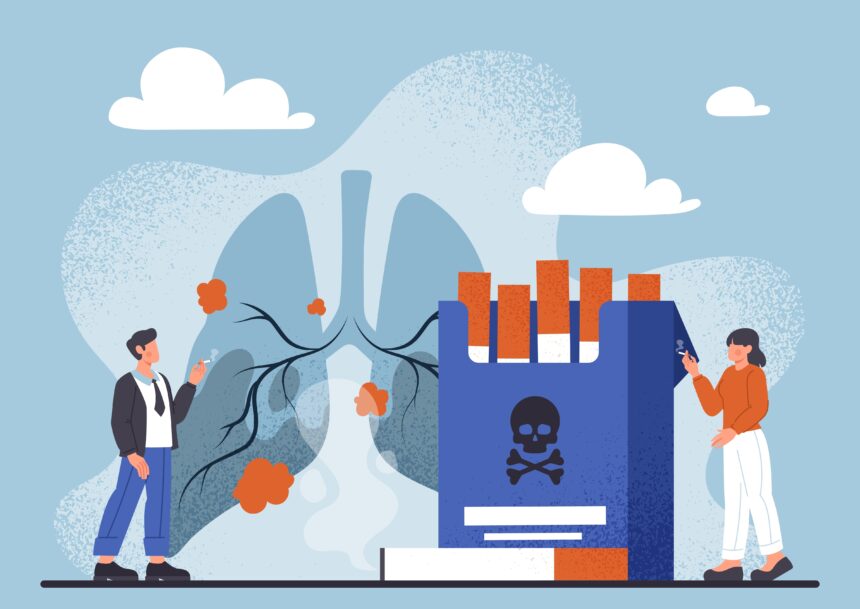Nicotine is a highly addictive substance found in tobacco products such as cigarettes and chewing tobacco. It is a powerful stimulant that activates the brain’s reward system, leading to feelings of pleasure and a temporary boost in mood and alertness. However, the effects of nicotine can be dangerous and potentially life-threatening, particularly when consumed in high quantities or over extended periods.
Therefore, it is important to stop using nicotine and maybe try using nicotine replacement if quitting cold turkey doesn’t work. Keep reading to learn more about the dangers of nicotine.
What Are the Risks of Using Nicotine?
One of the most significant dangers of nicotine is its impact on the cardiovascular system. Nicotine causes blood vessels to narrow, leading to increased blood pressure and an increased risk of heart attack and stroke. Additionally, nicotine can damage the lining of the arteries, leading to the development of atherosclerosis and other cardiovascular diseases.
In addition to its impact on the cardiovascular system, nicotine can also have a significant impact on the respiratory system. When nicotine is inhaled through cigarette smoke, it can cause damage to the lungs and respiratory tract, leading to chronic obstructive pulmonary disease (COPD), emphysema, and other respiratory conditions.
Furthermore, nicotine addiction can also have a significant impact on mental health and wellbeing. Nicotine withdrawal symptoms can be severe and can include irritability, anxiety, depression, and difficulty concentrating. Additionally, nicotine addiction can increase the risk of developing mental health conditions such as anxiety disorders, depression, and schizophrenia.
Despite the many dangers associated with nicotine, there are some positive aspects to vaping that allow for the control of nicotine levels. Unlike traditional tobacco products, vaping allows users to control the level of nicotine intake by selecting the strength of the liquid they use in their device. This can be helpful for those who are trying to quit smoking or reduce their nicotine intake gradually. Over time, it is possible to gradually reduce nicotine intake until it is eliminated altogether.
It is important for those who are trying to limit their nicotine intake to seek professional help and support. Nicotine addiction can be challenging to overcome, and it is important to have a solid support system in place to help manage withdrawal symptoms and prevent relapse. Support groups, counseling, and nicotine replacement therapy can all be effective tools in helping individuals to quit smoking or reduce their nicotine intake.
In addition to seeking professional support, there are several lifestyle changes that can help to reduce nicotine intake. Regular exercise and a healthy diet can help to reduce nicotine cravings and improve overall health and wellbeing. Additionally, engaging in activities that promote relaxation and stress relief, such as meditation or yoga, can be helpful in managing withdrawal symptoms and reducing the risk of relapse.
It is also important to recognize that quitting nicotine is a process that takes time and patience. It is important to set realistic goals and take things one step at a time. Quitting nicotine can be a challenging process, and it is important to celebrate each small victory along the way.
Stop Using Nicotine to Protect Your Health
In conclusion, nicotine is a highly addictive substance that can have a significant impact on both physical and mental health. While vaping can provide a way to control nicotine intake, it is important to seek professional support when trying to quit or reduce nicotine intake. Engaging in lifestyle changes such as exercise, healthy eating, and stress management can also be helpful in managing withdrawal symptoms and reducing the risk of relapse. Quitting nicotine is a challenging process, but with the right support and mindset, it is possible to overcome nicotine addiction and live a healthier, happier life.










